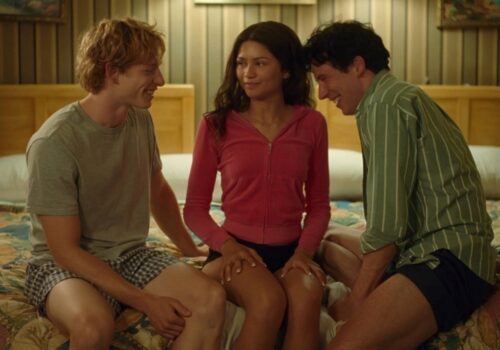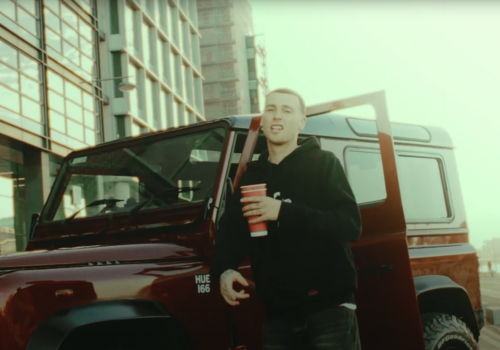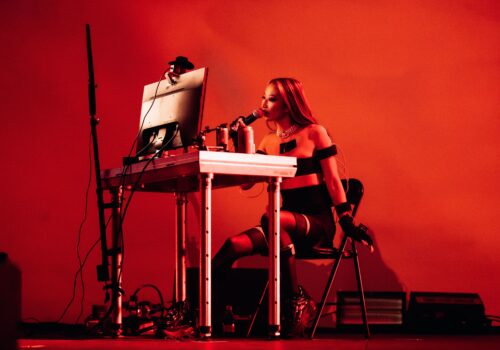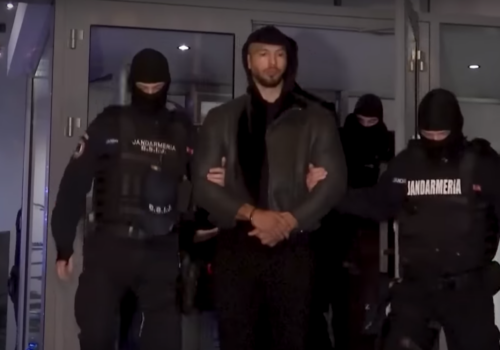How a fan convinced Loyle Carner to keep making music
“I forgive you, I forgive you, I forgive you”. Benjamin Coyle-Larner’s favourite lyric from his new album hugo, delivered on the record’s soul bursting almost title track. Words for a father from a son who was ready to turn to the next page of their relationship.
hugo is an intensely intimate journey that started when two men got into a car somewhere in London during a pandemic – Loyle Carner, as we know him, and his estranged father. The latter teaching the former how to drive because he too was now a father or about to become one. Both men, eyes on the road, began to talk not about three-point-turns and parallel parking but about everything. The experience wasn’t meant to birth an album, but drawing from the deeply personal is the Loyle Carner way.
Following the Pen
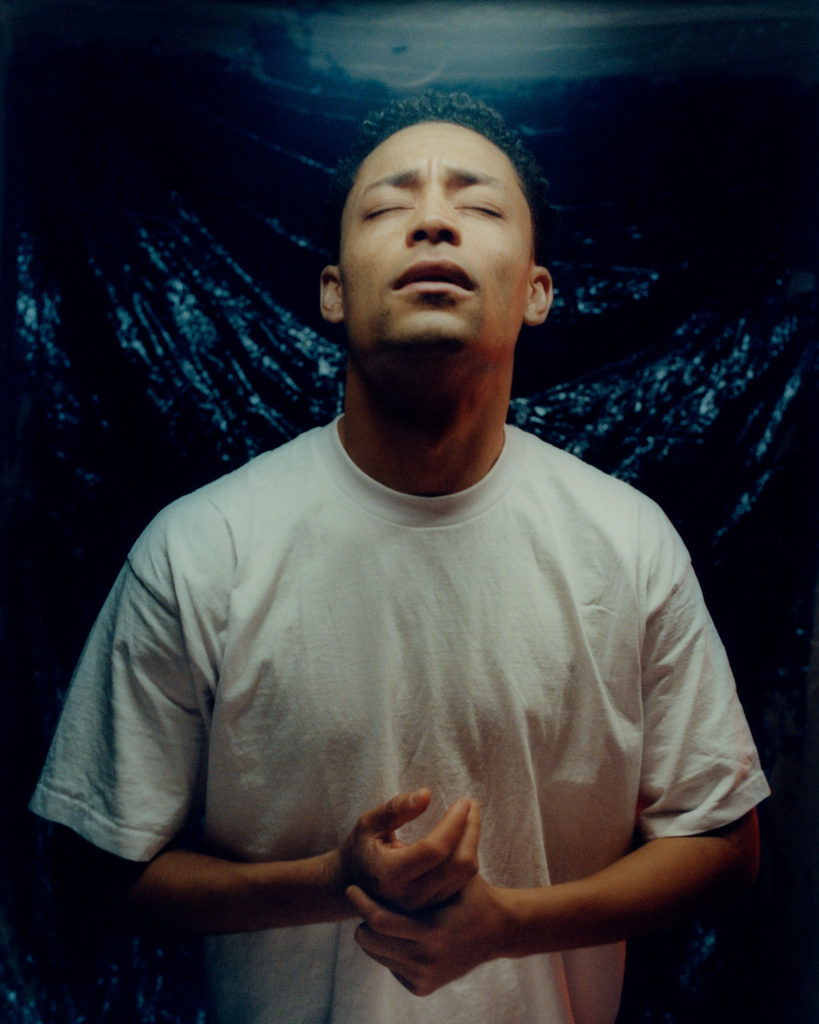
“I guess it’s the only way I know how to make music,” Carner began, his dulcet tones pouring out from a Zoom link.
“It’s frustrating at times, you know because sometimes I want to be able to make stuff like 21 Savage and Drake, but I just can’t do it.”
“I forgive you, I forgive you, I forgive you”
Loyle Carner – ‘HGU’
The record quite literally starts with Hate and ends on the aforementioned HGU, with forgiveness but Carner didn’t set out to create the perfect story arc. The songs came pretty much chronologically and he just went with it.
“I was following the pen,” Carner explained.
“’Hate’ was one of the first ones. I think ‘Nobody Knows‘ was the first one, but they were all pretty close together in that first pocket of music.”
Carner initially wrote ‘Nobody Knows‘, a study in race, identity, abandonment and fitting in, for his and his father’s ears only. A couple of songs on the album started out like that. The South Londoner sees music as a powerful space that allows for reflection. He was really going through something at the time and needed a forum to help get his head around it all.
“It wasn’t the first time I’d done it, something like that. I guess I’m getting kind of used to the world beginning to hear my bits. I think what I found on my last album was those bits that weren’t necessarily initially made for other people ended up really helping more than just me.”
“I told the black man he didn’t understand. I reached the white man, he wouldn’t take my hand”
Loyle Carner – ‘Nobody Knows (Ladas Road)’
There is no doubt that Carner’s music is helping people. Go to any of his videos on YouTube and scroll through the comments. It’s ‘thank yous’ and people picking out their favourite lines and explaining to their favourite artist how much it means to them to see themselves reflected back with such beauty and understanding. Go to any Loyle Carner gig and it’s hugging, crying, kissing, dancing, singing. It’s a real shared experience and you feel different afterwards as you huddle with the crowd outside like a congregation that’s just left a church. With that said it makes it even more unfathomable that we almost never got this album. In fact, we came close to never getting any new Loyle Carner music ever again. There’s a strand of reality, somewhere in the multiverse, where Caner stepped away, gave up or maybe gave in.
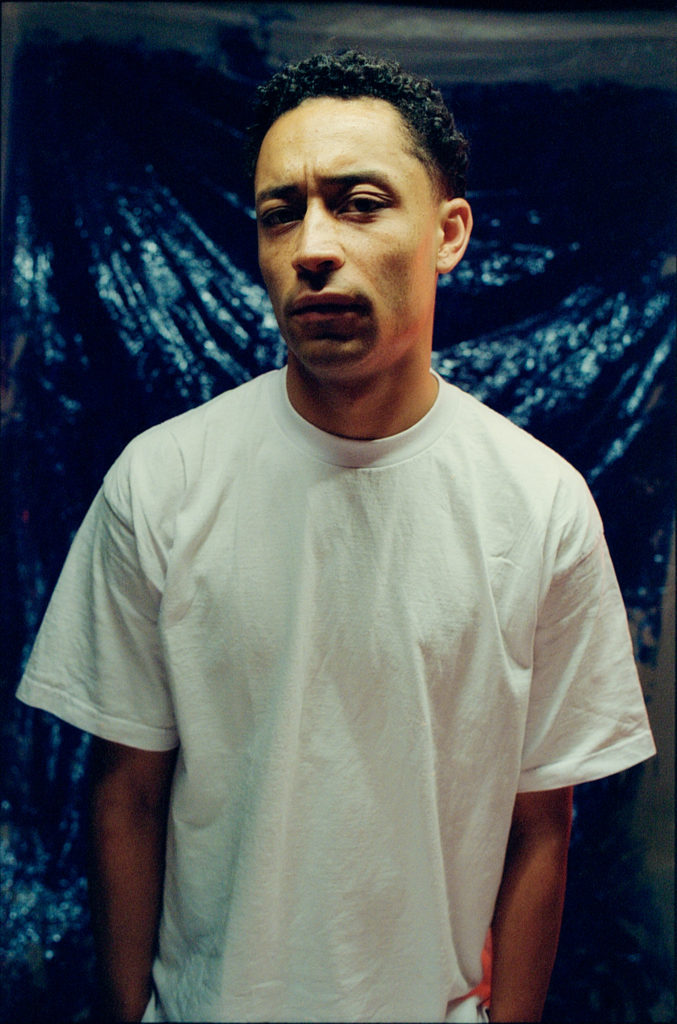
“Over lockdown I was thinking maybe I’m done with making music,” Carner began.
“I wasn’t finding it as inspiring as I used to and I said to myself if I started to find it, you know, effort and not an enjoyable process, then I need to find something else to spend my time doing.”
Enter a young man called Hugo, a kid Loyle met through his ADHD cooking school and described as a big influence on the album. A kid who coincidentally shares his name with Loyle’s father’s car – the one he was learning to drive in at the time. The old metal greenhouse that nurtured the album’s most personal moments. Fate? Serendipity? Something else entirely? You decide.
“He was always like to me,” recalled Carner, “We need you. Come on man. I need your music. Please don’t stop.”
“I can’t underestimate the impact that had on me.”
“He was always like to me,” recalled Carner, “We need you. Come on man. I need your music. Please don’t stop.”
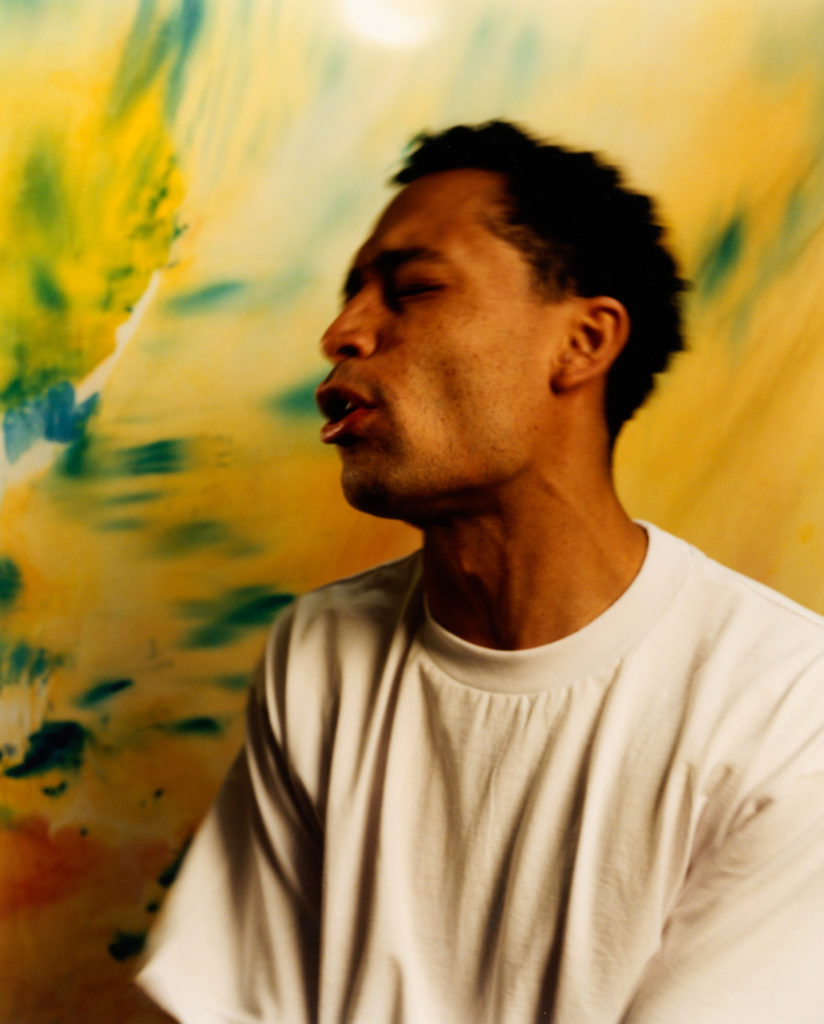
Lights and Cameras
It was Hugo who suggested Loyle go to YouTube and search ‘Loyle Carner type beats’ because he’d spotted there were some really good ones on there. That’s how Loyle came across a track called Summer Evenings by a producer called zento. It became the foundation for HGU and the spell of doubt was broken.
“I was surprised during lockdown that I actually kept creating,” Carner went on.
“I kind of figured that when all the the lights and the cameras and action was all going to be gone I would probably just move on to the next thing, but no. I really kept going.”
Despite missing the lights, and the cameras, Loyle used to find that part of his life overwhelming and stressful – the tours, the press, the fame, but it was in the stillness of lockdown that he found a renewed sense of gratitude for what he does. As for many of us, the pandemic gave Carner perspective, perhaps at the perfect time.
“How lucky am I to be able to talk to you right now about my music?,” he asked.
“Now I don’t take any moment for granted, honestly. It sounds cheesy but it’s true.”
“They say that time waits for no man, at least it didn’t for my old man”
Loyle Carner – ‘A Lasting Place’
The track A Lasting Place appears in the second half of the album. It’s a soft, piano-based reflection on fatherhood and mother’s love. It features a poem from Kate Baer’s collection What Kind Of Woman and a lyric written by Dublin artist Kojaque.
Perhaps it’s no big surprise to see these words included. Carner loves Dublin. He played his first official gig here in October 2012 supporting MF DOOM at The Button Factory. He came up on Rejjie Snow and he always feels so much love from the audience every time he gigs here. Not to mention that Carner and Kojaque, two honey-toned lyricists, are a match made in confessional hip-hop heaven. The pair had met previously at a festival but it wasn’t until lockdown when Carner developed a deep appreciation for what his fellow artist was putting out.
“He’s one of the few that I really think is pushing the boundaries of what rap and poetry can be, but it’s still so familiar. It still feels like a safe space,” Carner voiced.
“I put it (the lyric) in because we went through similar stuff. We both lost our fathers. I think he (Kojaque) put it so well that there was no other line I could use except for his, you know?”
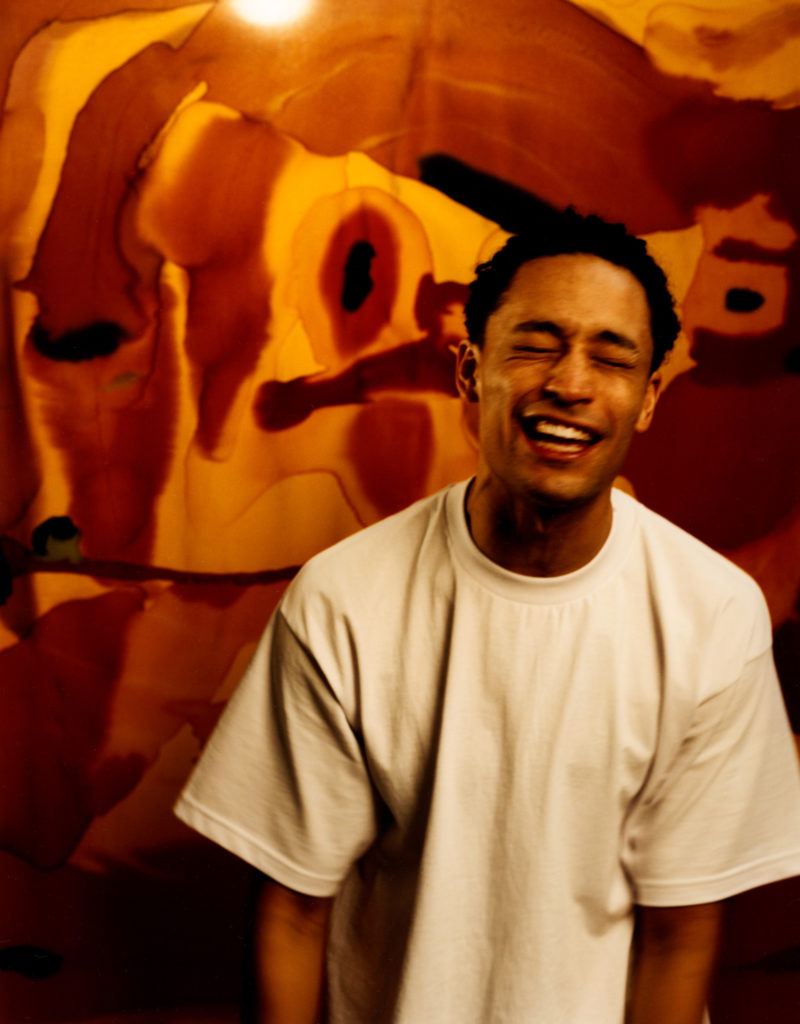
Carner is referencing his stepdad Nik here. The man who raised him alongside his mum Jean before he passed away in 2014. The theme of fatherhood runs so deep throughout hugo as Carner has perhaps more strands to juggle than most. He’s spoken previously about having to step up during that time, to fill his Dad’s shoes. Those familial responsibilities make up a large part of his 2014 debut EP A Little Late. Now here he is, eight years later reconnecting with his birth father after becoming father himself.
“He got quite emotional,” Carner explained of his biological Dad’s reaction to the record.
“He found it quite beautiful I think… It’s something he’s been looking for a long time, just an understanding with me. To give it to him was pretty incredible, to give him this gift for his life so he can sit back and reflect on our relationship and how it’s growing,” he drifted.
“He found it quite beautiful I think… It’s something he’s been looking for for a long time, just an understanding with me. To give it to him was pretty incredible.”
Loyle Carter
A Little Bit of Closure
“I’ve just been able to, I don’t know, find a little bit of closure with a few things and look after myself and understand that you have to be brave”
Loyle Carner
Hugo, the car, got to hear the record too. It’s still up and running although there are dubious reports as to whether it will pass its next MOT. Carner fittingly shot the album’s cover in Hugo and had the record on for the duration of that. It was heavy, he recalled of the experience, but “the album was made to be listened to in the car.”
This record is perhaps Carner’s most personal to date. It’s such a huge journey of self discovery, one that many would be afraid to make let alone share with the world. It’s a journey that’s paid off though. Compared to who he was at the beginning of the record, Carner feels happy, really happy for the first time in a long time.
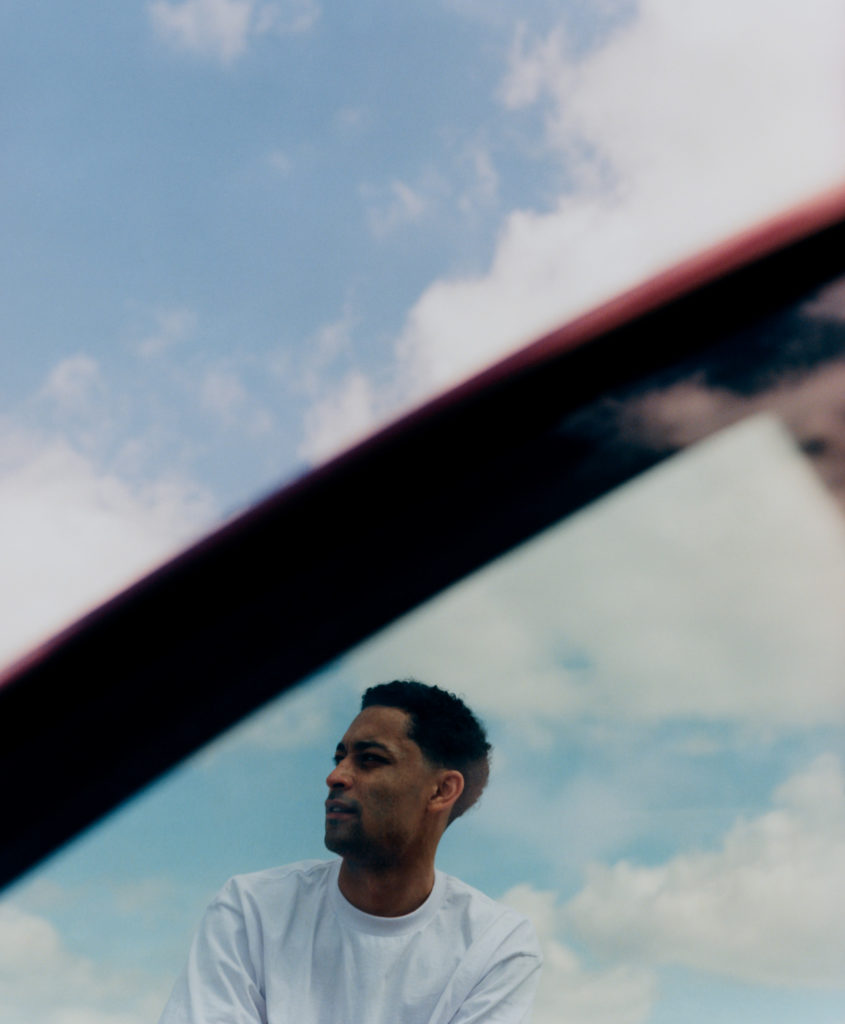
“I’ve just been able to, I don’t know, find a little bit of closure with a few things and look after myself and understand that you have to be brave,” he elaborated.
“When you’re a parent you end up doing all this stuff, not for yourself, you end up doing it for your child right? But it ends up being really self-fulfilling, that you do all this selfless stuff like I’m going to open this door that I’m too scared to open or I’m going to confront this thing that I’m embarrassed about or scared about, but when you do it you’re not doing it for you, but it ends up really helping you.
“I’m in a much better spot with all of that stuff, just looking after myself, you know?”
Loyle Carner plays Vicar Street on 19, 20, 21 February 2023. He returns for All Together Now in August.

